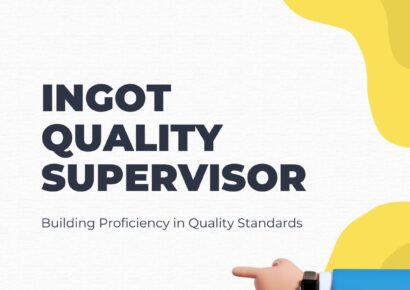Currently Empty: ₹0.00
About Course
The Ingot Maintenance Supervisor oversees maintenance operations to ensure the efficient and uninterrupted production of ingots. Responsibilities include scheduling maintenance tasks, supervising maintenance technicians, and coordinating with production teams. They enforce safety protocols, maintain equipment documentation, and optimize maintenance procedures for increased reliability. The supervisor troubleshoots issues, implements preventive measures, and strives for continuous improvement in maintenance practices. Their leadership ensures ingot production remains consistent, efficient, and of high quality.
Course Content
Ingot Manufacturing Process
-
Ingot Manufacturing Process Flow
01:10
Equipment Maintenance
Utilities
6s Occupational Health, Safety, and Environment (OHSE)
Manufacturing Execution System
Workplace Help and Resources
Tags








